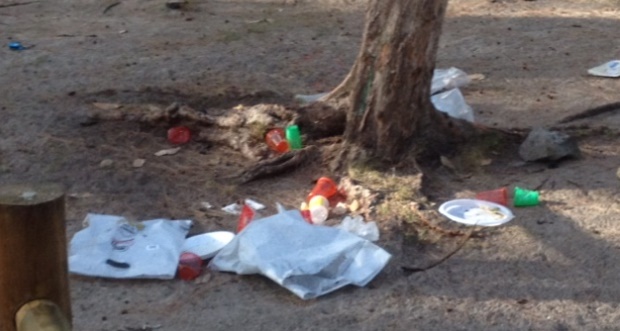Publicité
A beach of sand, not of plastic
Par
Partager cet article
A beach of sand, not of plastic

If you go for a walk on a public beach in Mauritius, especially on Monday mornings, you are more likely to find plastic bottles than the coquille bonheur you are looking for. If you were on a plastic treasure hunt though, you wouldbe delighted to find a variety of random items including plastic bags, bottles and caps, cans, toothbrushes, broken sandals, cans, and other bits and pieces.
What are the consequences of polluted beaches?
The obvious observation is that a beach covered with litter is less attractive than a pristine beach. Let alone our personal enjoyment of our beaches, up to 40,000 Mauritians today rely on tourism to put food on the table. If tourists decided to switch to a cleaner destination, the impact on our economy would be disastrous.
Another, less known, impact of beach trash is even more worrying. Every piece of plastic ever left in the ocean is still there – just in smaller pieces. Plastic slowly disintegrates into tiny pieces that are invisible to the human eye. Fish, birds, and other creatures mistake the plastic pieces for food. If the fish don’t die from feeding on them, they are most likely caught in our nets, and put on our tables for dinner! The consequences on human health are not fully known yet but we are all aware that eating plastic chemicals is toxic.
Marine litter is a problem worldwide. Every year, the amount of plastic we produce is equivalent to the weight of half the planet’s human population. Most of the trash that ends up on our beaches are items we all use everyday -- cigarette butts, food wrappers, plastic bottles, straws, bottle caps, plastic bags, and cans.
How can we stop the flow of trash before it reaches our ocean, ruins our beaches, and depresses our economy?
Mauritius has some local heroes.
Mr Serge Pascal has been collecting bottles and cans since 1992 in Poste Lafayette, Roches Noires, Ile D’Ambre, and Riviere du Rempart. Every Monday he goes from door to door and sells what he collects to Polypet, a recycling company. He explains that he gets paid by the kilo and that one kilo approximately accounts for 65 bottles.
Maxiclean has a dedicated team working hard to keep our public beaches clean. Every day, 20 people go to Mont Choisy public beach to pick up trash. Mondays are the worst because of weekend picnickers who leave their bottles, wrappers, take-away boxes, and plastic bags behind. Without Maxiclean’s help at Mont Choisy only, 50 trash bags full of litter would end up in our oceans every day.
Trash is not only on beaches. Roches Noires Eco-Marine organizes clean-ups in mangroves and caves. They wonder: if people can take bottles and bags to the beach why can’t they take them back with them?
We can all join them in being part of the solution:
- Less than 50% of all plastic bottles used are currently recycled in Mauritius. Let’s up the numbers by using recycling bins. Mission Verte has 21 recycling bins around the island in which they collect paper, carton, aluminum cans, and plastics. Make sure you crush your bottles and cans in advance so that more of them can fit in the bins provided.
- A family of five in Mauritius uses on average 500 plastic bags per year. By using reusable bags at the supermarket or bazaar, we can cut down on the number of plastic bags we use per year.
- In Rodrigues, they recently prohibited the production and use of plastic bags on the island, a huge step towards a clean environment! Demand the same for Mauritius; refuse to use plastic bags when offered.
- Pick up trash when you see it, even if it’s not yours.
Talk about plastics and recycling and help our island stay clean. Every little step counts. There are oceans of options to create waves of change.
Challenge
Congratulations to last month’s winner, Jean Pierre! Check out the details online.
This month, we have a creative challenge for you. What masterpiece can you create with litter? We are looking for something made of trash only that will help raise awareness towards ocean conservation or against environmental pollution.
Send us a photo of your creation at lacaz.poisson@lexpress.mu.
Publicité
Publicité
Les plus récents






